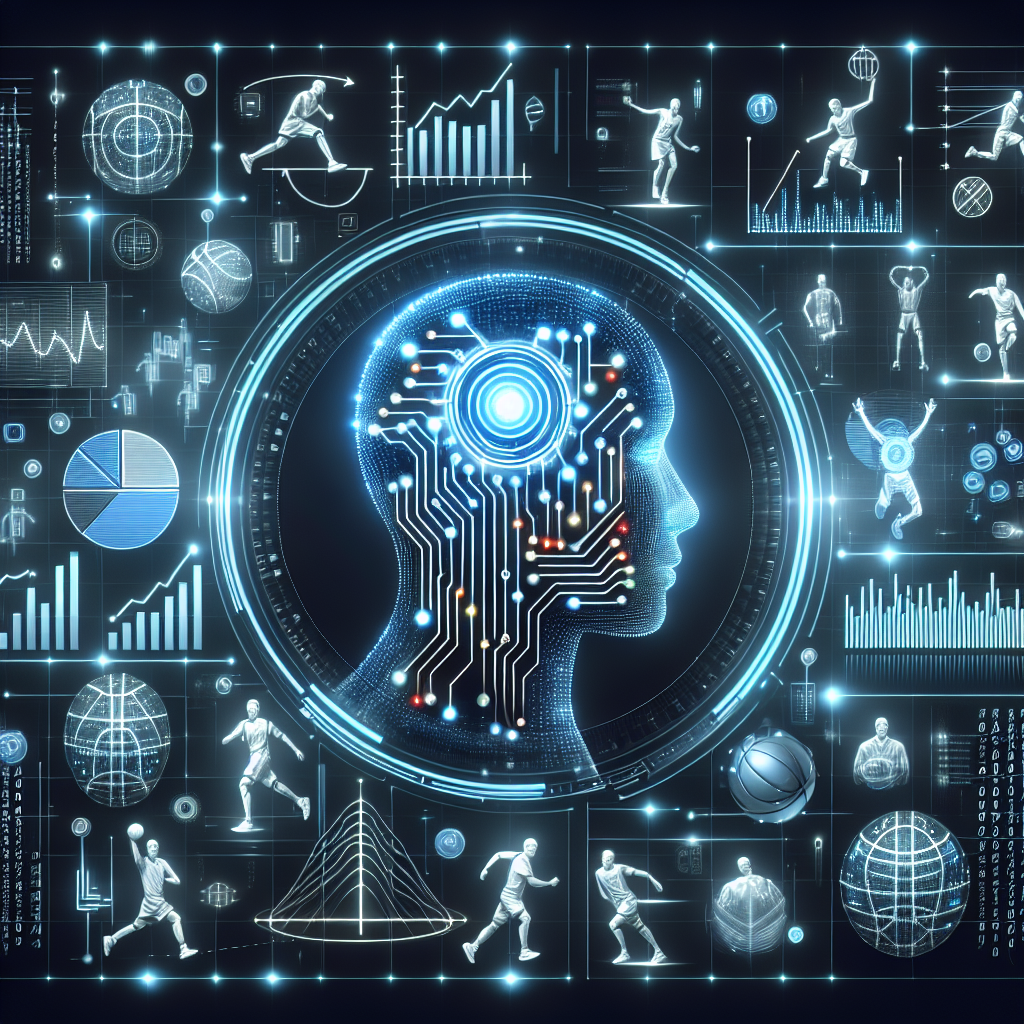In recent years, artificial intelligence (AI) has been making waves in the sports industry, revolutionizing the way data is analyzed and utilized to improve team performance and athlete development. From player tracking to injury prevention, AI has proven to be a game-changer in the world of sports analytics. In this article, we will explore how AI is being leveraged for data analysis in sports and the potential benefits it can bring to teams and athletes.
One of the key areas where AI is making a significant impact in sports is in player tracking and performance analysis. By using AI algorithms and machine learning models, teams can now track and analyze player movements in real-time, allowing coaches and analysts to gain valuable insights into player performance and optimize game strategies. For example, with the help of AI-powered tracking systems, teams can analyze player positioning, speed, acceleration, and other key metrics to identify strengths and weaknesses and make data-driven decisions to improve performance on the field.
Another area where AI is being leveraged in sports is in injury prevention and athlete monitoring. By analyzing data from wearable devices and sensors, teams can now track and monitor athletes’ physical condition and performance metrics to identify potential injury risks and optimize training programs. AI algorithms can analyze large volumes of data to detect patterns and trends that may indicate an increased risk of injury, allowing teams to take proactive measures to prevent injuries and keep athletes healthy and performing at their best.
In addition to player tracking and injury prevention, AI is also being used in sports for talent identification and recruitment. By analyzing vast amounts of data from player performance metrics, scouting reports, and other sources, teams can now use AI algorithms to identify and evaluate potential talent and make informed decisions on player recruitment and development. AI can help teams identify players with the right skills and attributes to fit their playing style and team culture, giving them a competitive edge in talent acquisition.
Furthermore, AI is also being used in sports for fan engagement and marketing. By analyzing data from social media, ticket sales, and other sources, teams can now use AI algorithms to better understand fan behavior and preferences, allowing them to tailor their marketing strategies and engage with fans in a more personalized and targeted way. AI-powered analytics can help teams identify trends and patterns in fan engagement, predict fan behavior, and optimize marketing campaigns to drive ticket sales, merchandise revenue, and overall fan loyalty.
Overall, leveraging AI for data analysis in sports has the potential to revolutionize the way teams and athletes approach performance optimization, injury prevention, talent identification, and fan engagement. By harnessing the power of AI algorithms and machine learning models, teams can gain valuable insights from vast amounts of data, make data-driven decisions, and ultimately improve their competitive edge on and off the field.
FAQs:
Q: How can AI help teams improve player performance?
A: AI can help teams improve player performance by analyzing player tracking data, identifying strengths and weaknesses, and optimizing game strategies based on data-driven insights. By tracking player movements and performance metrics in real-time, teams can gain valuable insights into player performance and make informed decisions to improve overall team performance.
Q: How can AI help prevent injuries in sports?
A: AI can help prevent injuries in sports by analyzing data from wearable devices and sensors to monitor athletes’ physical condition and performance metrics. By detecting patterns and trends that may indicate an increased risk of injury, teams can take proactive measures to prevent injuries and keep athletes healthy and performing at their best.
Q: How can AI help with talent identification and recruitment in sports?
A: AI can help with talent identification and recruitment in sports by analyzing data from player performance metrics, scouting reports, and other sources to identify and evaluate potential talent. By using AI algorithms to analyze large volumes of data, teams can make informed decisions on player recruitment and development, giving them a competitive edge in talent acquisition.
Q: How can AI help with fan engagement and marketing in sports?
A: AI can help with fan engagement and marketing in sports by analyzing data from social media, ticket sales, and other sources to better understand fan behavior and preferences. By using AI-powered analytics to identify trends and patterns in fan engagement, teams can tailor their marketing strategies and engage with fans in a more personalized and targeted way, driving ticket sales, merchandise revenue, and overall fan loyalty.

